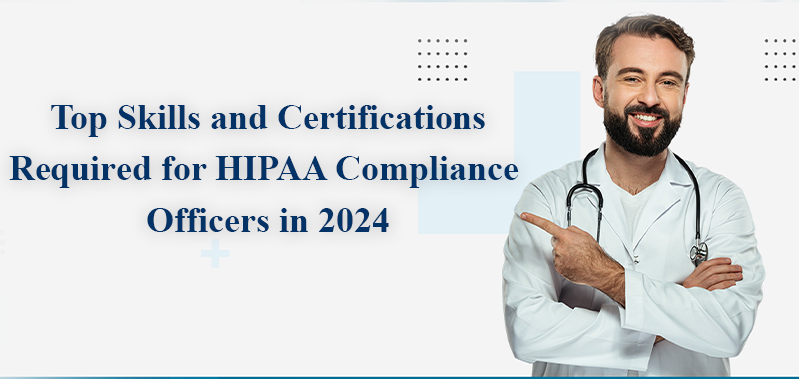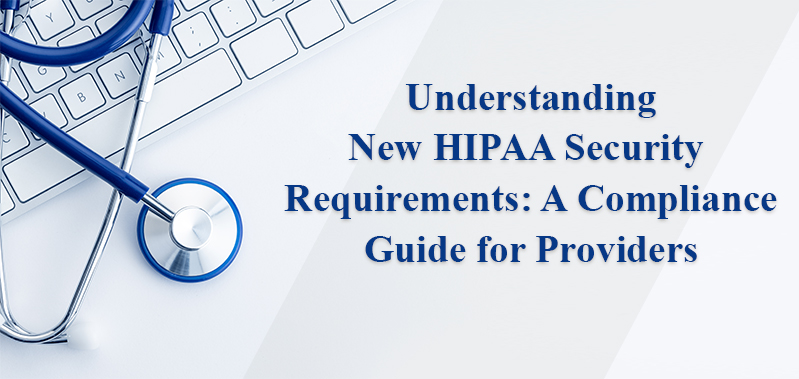
Top Skills and Certifications Required for HIPAA Compliance Officers in 2024
The role of a Health Insurance Portability and Accountability Act Compliance Officer is of utmost importance in the current healthcare scenario. Due to the continuous evolution of regulations and the risk landscape, organizations should ensure that people lead the structural elements of compliance programs with a deep understanding of the enigma that these requirements represent. For those following this career path or trying to be better in this professional community, it is enough to know what the most critical skills and certifications in 2024 are. With this article, HIPAA Compliance Officer Training 2024 will gain insight into the required skills and certifications that will help them remain relevant in the profession.
Why HIPAA Compliance Is Important
Healthcare facilities and other entities, such as health programs that are engaged in the use of electronic communication, are bound by a set of laws referred to as HIPAA. Non-adherence to the guidelines is bound to lead to mitigation of the excessive fines as legal and even public relations consequences can lead to dire damage. Because of this, organizations aim for their Compliance Officers to develop and maintain successful compliance programs, making the position of a HIPAA Compliance Officer very paramount, yet its challenges are equally daunting.
Top Skills for HIPAA Compliance Officers in 2024
1. Regulatory Knowledge and Compliance Competence
Regulated and controlled understanding of HIPAA, which they have no doubts about, particularly given the technical detail it involves, is the HIPAA Compliance Officer Training 2024. It is essential to consider how these guidelines might be used in different circumstances and to keep up with the news or changes in the law for active legislative compliance management. They recommend, for instance, that most states adopt state-specific privacy policies that will be in effect in the year 2024 when HIPAA compliance officers will come into review and update their training course coverage to encompass existing privacy laws in the US as states have started putting privacy regulations that exceed the federal HIPAA standards.
2. Risk Assessment and Management
Risk assessment is one of the most essential elements in any compliance program if there is a hope of being effective. It is the responsibility of Compliance Officers to prevent the risk that is posed against PHI, develop mitigation policies and monitor the effectiveness of the policies through regular risk assessment. Knowing the necessary steps in evaluating how an organization collects, stores and shares its information is equally important.
3. Data Security and Information Technology Proficiency
With leadership roles tending to move towards enhanced use of IT solutions and more records going electronic coupled with increasing cyber threats, there is a significant need for HIPAA Compliance Officers to have proper IT security skills. This encompasses knowledge of data encryption standards, data leakage prevention techniques, access policies and procedures, and how to deal with fighting cyber attacks. Knowledge of cybersecurity frameworks such as the National Institute of Standards and Technology (NIST) Cybersecurity Framework or Health Information Trust Alliance (HITRUST) would also be an added advantage.
4. Project Management Skills.
Many times, HIPAA compliance requires the department's experts to work together. To design, develop, and control compliance programs, a Compliance Officer must have advanced Project Management skills. Project management skills, including Agile management and Six Sigma, may help enhance compliance initiatives.
5. Communication and Training Abilities.
Compliance Officers should also possess adequate communication skills that enable them to break down the legal documents into simple terms that every employee incidental to the way documents can enforce. Some of these tasks involve the preparation of compliance training materials, facilitation of training, and reporting the results of audits or risk evaluations in a succinct, concise, professional manner.
6. Analytical and Problem-Solving Skills.
Compliance data, audit results, and risk assessments call for the ability to break down information into implementable procedures systematically. Problem-solving in terms of being able to break down complex problems, compliance officers should be able to provide solutions to issues, whether it is securing a flaw or preempting a possible breach.
7. Ethical Leadership and Decision-Making.
Compliance officers encounter difficult ethical dilemmas on a daily basis due to the great amount of legal pressure and organizational needs regarding business and compliance. As such, concrete examples of relevant soft skills like leadership and ethical decision-making would be central to these participants’ existence.
Best Certifications for HIPAA Compliance Officer Training 2024
Apart from showing a person’s ability, certifications of this nature help to build a profile and further the career of a person. In 2024, the courses above are among the ones that one would be recommended to pursue in case they wish to either specialize or grow in the field of HIPAA compliance:
- Certified HIPAA Privacy Security Expert (CHPSE) One of the most credible certifications targeted for HIPAA professionals is from the HIPAA Academy, the CHPSE certification. It encompasses comprehension of the HIPAA Privacy and Security Rules, the requirements for the Breach Notification Rule, implementation and other practical aspects of the role aimed at achieving HIPAA compliance. This certification would best suit compliance officers looking to comprehend HIPAA regulation at a middle level.
- Certified Information Systems Security Professional Certification, also known as CISSP, is another cyber security certification that is likely not particular to the health industry. However, the CISSP is the most widely accepted abiding standard worldwide for compliance certifying agencies.
Choosing the Right Certification in 2024
When selecting a certification, HIPAA Compliance Officers should consider their specific roles, responsibilities, and career aspirations. For those in smaller organizations, a broad certification like CHC may suffice. In contrast, those in larger organizations with a focus on IT security might benefit more from a CISSP or HCISPP. Ultimately, having a combination of these certifications will ensure Compliance Officers are well-equipped to tackle the challenges of HIPAA compliance in 2024.
Final Thoughts
The role of a HIPAA Compliance Officer is dynamic, demanding a diverse skill set and up-to-date certifications to navigate the evolving healthcare regulatory landscape. By acquiring the right skills and pursuing advanced certifications, Compliance Officers can ensure they are prepared to protect patient data, maintain regulatory compliance, and contribute to the overall success of their organizations. Investing in professional development through certifications like CHPSE, CISSP, and CHC will not only strengthen compliance efforts but also enhance career prospects in this ever-changing field.






The role of a HIPAA Compliance Officer is definitely evolving, and keeping up with the necessary skills and certifications is crucial. This type of information can be super valuable for both current and aspiring compliance officers. Keep up the excellent work!"